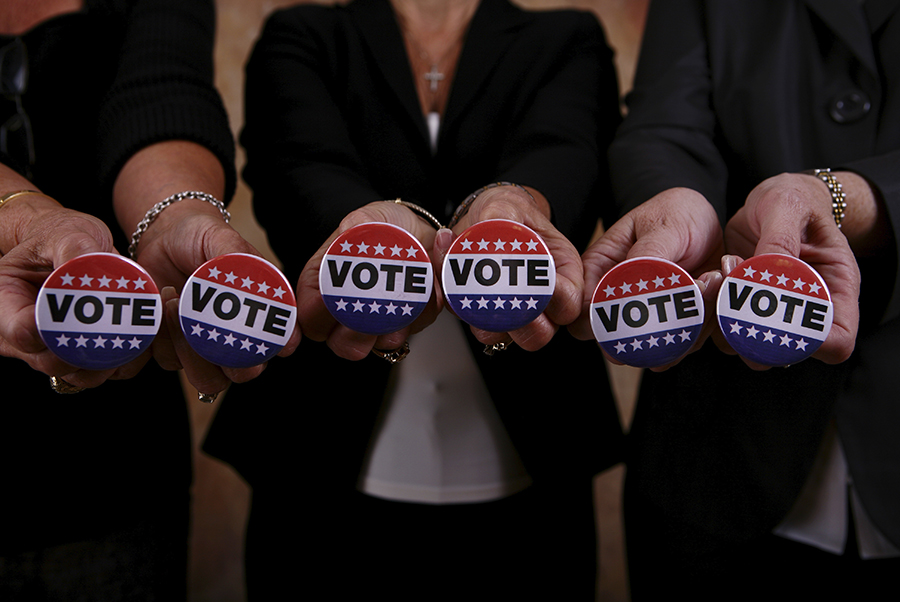Author: Justin Mckibben
As we come closer to 2016 and the next presidential election, there are already talks of how the candidates will determine their strategies and focus points on the campaign trail. Former Secretary of State and former First Lady Hillary Clinton has outlined in the last week her own crusade the same way at just about every event she has attended so far, and it seems that what has been labeled the “silent epidemic” of addiction is a key point for her.
When listing her “four big fights”, Clinton mentioned:
- Rebuilding the economy
- Strengthening families
- Stripping dysfunction from government
- Protecting the country from security threats
Included in that outline mental health and substance abuse are not frequently discussed in presidential politics, however it seems that these subjects keep being brought to the forefront of Clinton’s attention, and she has not made light of the importance of addressing it.
The Hot Topic
Last week Clinton heard it brought up in Iowa in Council Bluffs, and in Davenport. Then again this past Monday the thought came up. Clinton spoke to voters at a “round table” discussion at Whitney Brother’s furniture manufacturer in the key primary state of New Hampshire, and the Democratic presidential hopeful promised to make mental health and substance abuse a large part of campaign. Hillary described it as more of a national concern instead of an issue in singled out communities and said,
“I think a lot of people are thinking, Well, that’s somebody else’s problem. That’s not my problem. And indeed, it is all of our problem. This is not something we can just brush under the rug and wish it would go away.”
Several participants at the panel-like discussion at expressed to Clinton that they viewed mental health problems, including substance abuse, as a leading concern. Pam Livengood, an assembler at Whitney Brothers, raised the issue and defined it as a “growing drug problem” in the area, citing a personal experience with a struggling family member and saying,
“There are very limited resources here. And we’d like to see something in that respect. Do you have any further ideas?”
This discussion attended by about a dozen local Democrats was meant to concentrate on the first of Clinton’s “four big fights”: the economy.
However she made a shift in content after Livengood brought up mental health, and spent a considerable chunk of time discussing the issue with several other panelists. Clinton answered with,
“Well, I do actually. I am really concerned, because, Pam, what you just told me, I’m hearing from a lot of different people.”
Clinton went on to mention the town of Austin, Indiana and the fact that drug use and sharing of dirty needles in that area has led to an HIV outbreak, and concluding that more resources should be spent on drug treatment. She told reporters that she wants the people to know she is listening, and the more she travels the more the issue comes up, so it must be taken into serious consideration.
Clinton’s Continued Campaign
Clinton only announced her campaign for president just over a week ago, but she seems to be on the offensive. Hillary seems to have some idea of how the dynamics of addiction has changed, noting that addiction persist as an increasing problem that has become less visible, which is why she refers to it as a “quite epidemic”. She added that treatment programs have seen steady cutbacks instead of new and improved support.
That being said, Clinton has made a point to show people that she is acknowledging their concerns. At a house party in Claremont, Clinton later that same Monday she told a crowd of about 50 people how much Livengood’s comment had reverberated in her mind, and how if she were just to read briefing books and focusing on her competition instead of on the issues, she would never have heard that clear message.
The roundtables are basically the main event format at this stage of the campaign game, so the topics put forth here may inform policies Clinton introduces later this year. So far she has praised the measure in the Affordable Care Act that requires most health insurance plans to cover mental health and substance services, but she said lawmakers have to do more and called for a “concerted policy” at all levels local, state, and national across the public and private sectors.
Other politicians have noted the importance of this issue, and it should be noted for voters that thus far it seems Clinton is more than willing to acknowledge the issue as an integral concern for most people in America. In the aftermath of what many people consider as a failed war on drugs, and in light of the recent spikes in heroin abuse and the mounting issue with overdose deaths, Clinton has done well to take the voters comments and questions into contemplation. Hopefully as this campaign continues we will hear more about what new ideas and initiatives she brings to the table.
While politicians and reformers fight to bring an end to the addiction and substance abuse problem running rampant in America, we see a lot changing in regards to drug policy, and the treatment of addicts. Maybe the future holds more innovation, but for now it takes some hope and action. If you or someone you love is struggling with substance abuse or addiction, please call toll-free 1-800-951-6135
